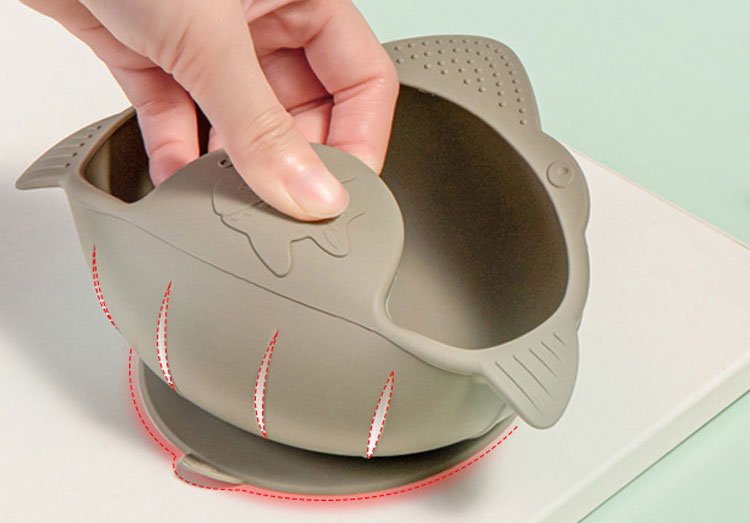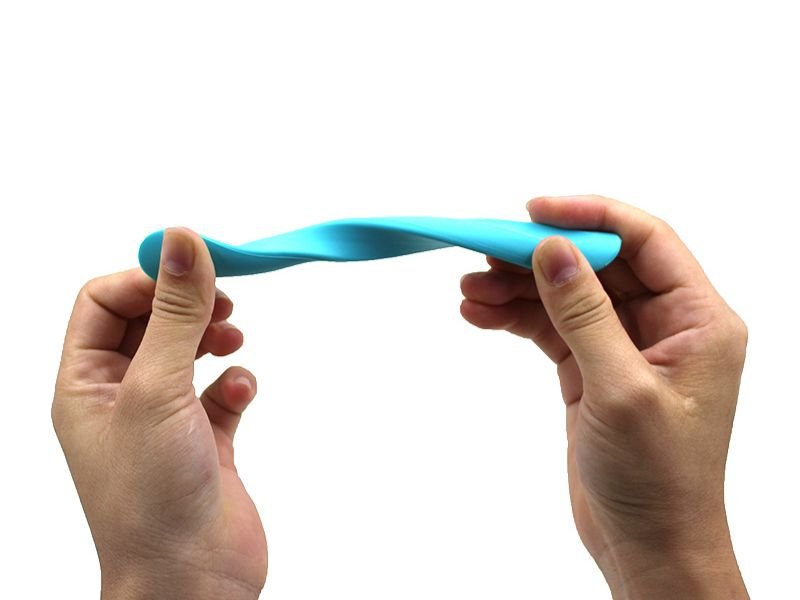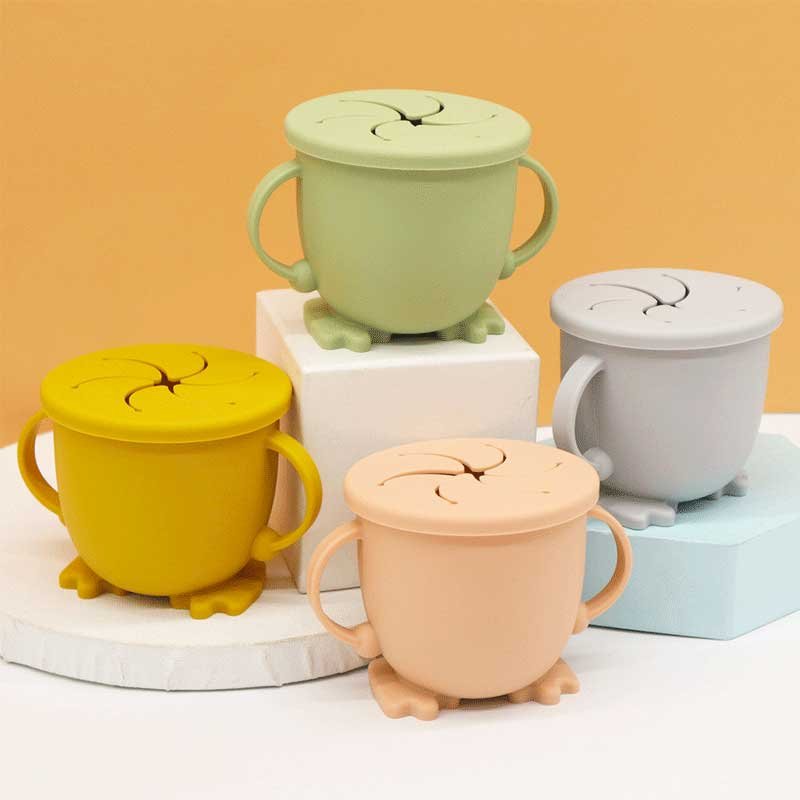Starting solids can be a messy, emotional, and exciting milestone. Without the right tools, it quickly becomes a daily frustration for parents and babies.
An essential silicone baby feeding set includes a suction bowl, training spoon, divided plate, bib, cup, and snack container—designed to make mealtimes easier and safer.
Each item in the set has a clear purpose. Together, they form a complete solution that supports independence, cleanliness, and developmental progress from the first bite to toddlerhood.
Why Choose Silicone for Baby Feeding?
Parents want products that are safe, easy to clean, and long-lasting. Plastic and glass often fall short.
Silicone is non-toxic, heat-resistant, soft, and durable, making it ideal for baby feeding items.
I chose silicone because I wanted one material that ticked all the boxes—safe, flexible, and easy to clean. Unlike plastic, silicone doesn’t leach chemicals, and unlike glass, it won’t shatter when dropped.
Benefits of Silicone for Baby Products
| Feature | Why It Matters |
|---|---|
| BPA-Free & Food-Grade | Safe for babies to chew and eat from |
| Heat Resistant | Microwave, dishwasher, and sterilizer safe |
| Soft & Gentle | Won’t hurt baby’s sensitive gums or skin |
| Durable | Resists tearing, cracking, and stains |
| Non-Slip | Suctions to surfaces, reducing mess |
Silicone also allows for fun, colorful designs that engage babies during mealtime and encourage them to interact with their food.
What is a Silicone Suction Bowl and Why Is It Needed?
A traditional bowl on a high chair tray is a recipe for disaster. Before you know it, it’s upside down on the floor.
A silicone suction bowl sticks to the table or tray, preventing spills and helping babies learn to self-feed without making a mess.

I remember how quickly my little one learned to fling bowls across the kitchen. Switching to a suction bowl made a huge difference. It stayed put, and she focused on eating instead of playing with the dish.
Features to Look For
- Strong Suction Base: Holds tight to smooth surfaces.
- Curved Inner Wall: Makes scooping food easier for little hands.
- Microwave Safe: Perfect for reheating purees or leftovers.
- Easy to Clean: Dishwasher safe with no crevices for bacteria.
This is often the first silicone feeding item parents buy—and for good reason.
What Role Does a Silicone Baby Spoon Play?
First bites need to be gentle. Metal spoons are too hard, and plastic wears out fast.
A silicone baby spoon is soft, flexible, and easy for babies to grip, making it the perfect first utensil.

The training spoon was one of my favorite tools. The flexible tip didn’t hurt her gums, and the thick handle was easy to grab. She didn’t just eat—she learned how to eat.
Types of Baby Spoons
| Type | Purpose |
|---|---|
| First Stage Spoon | For parents to feed purees |
| Self-Feeding Spoon | Thicker handle for baby’s hand |
| Textured Spoon | Doubles as teether and tool |
| Temperature-Sensitive Spoon | Changes color if food is too hot |
Silicone spoons encourage independence and sensory exploration, both of which are key in early development.
Why Add a Silicone Divided Plate?
Picky eaters hate when foods touch. One plate with three zones solves that problem with no extra dishes.
A silicone divided plate keeps foods separate and helps babies explore different textures without overwhelm.

My toddler loved having “a section for carrots, a section for chicken, and a section for rice.” This setup turned meals into mini adventures. It also helped us balance portions of protein, veggies, and carbs.
Divided Plate Benefits
- Built-In Suction: Same mess-free design as bowls.
- Rounded Compartments: Easier scooping and self-feeding.
- Visual Variety: Encourages trying new foods.
- Heat-Resistant: Safe for warm and cold dishes.
These plates often become a staple well into toddlerhood.
What Makes a Silicone Bib Essential?
Cute outfits don’t survive spaghetti night without a barrier. Cloth bibs soak through and stain fast.
A silicone bib with a food catcher pocket keeps clothes clean and catches dropped food, reducing waste and mess.

We went from three outfit changes per day to one—sometimes none. The silicone bib changed our entire routine. Just rinse and go.
Key Features
- Deep Catch Pocket: Collects crumbs and drips.
- Adjustable Neck: Fits babies from 6 months to 3 years.
- Waterproof & Stain-Resistant: Easy wipe-down cleaning.
- Rolls Up: Ideal for on-the-go parents.
Look for a bib with soft rounded edges so it doesn’t irritate the baby’s neck or shoulders.
Why Include a Silicone Cup in the Set?
Sippy cups are fine—but open cups help with real-life drinking skills from the start.
A silicone cup teaches babies how to drink from an open container, improving coordination and oral development.

We introduced an open cup at 6 months. At first, she spilled more than she sipped, but she learned fast. By the time she turned one, she could drink without help.
Options for Silicone Cups
| Type | Benefit |
|---|---|
| Open Cup | Trains muscles used in adult drinking |
| Straw Cup | Promotes suction and coordination |
| Spout-Free Trainer | Prevents spills while mimicking real cups |
Make sure the cup is the right size for tiny hands and has a soft, flexible rim.
Is a Silicone Snack Container Really Necessary?
Snack time = meltdown time if you’re not ready. Loose crackers in a bag? Not the best plan.
A silicone snack container with a spill-proof opening lets babies feed themselves while keeping food off the floor.

This was my secret weapon in the car, at the park, or waiting in line. I could hand her the snack cup and know she wouldn’t dump it out. She felt in control, and I felt sane.
Snack Container Features
- Soft Flap Lid: Lets little hands reach in without spilling.
- Dust Cover: Keeps snacks clean on the go.
- Easy Grip Handles: Perfect for self-feeding.
- Flexible & Safe: Chewable if dropped or mouthed.
It’s a small item with a big impact on convenience.
Conclusion
A well-designed silicone baby feeding set supports safe, mess-free, and developmentally appropriate meals from the very first bite.